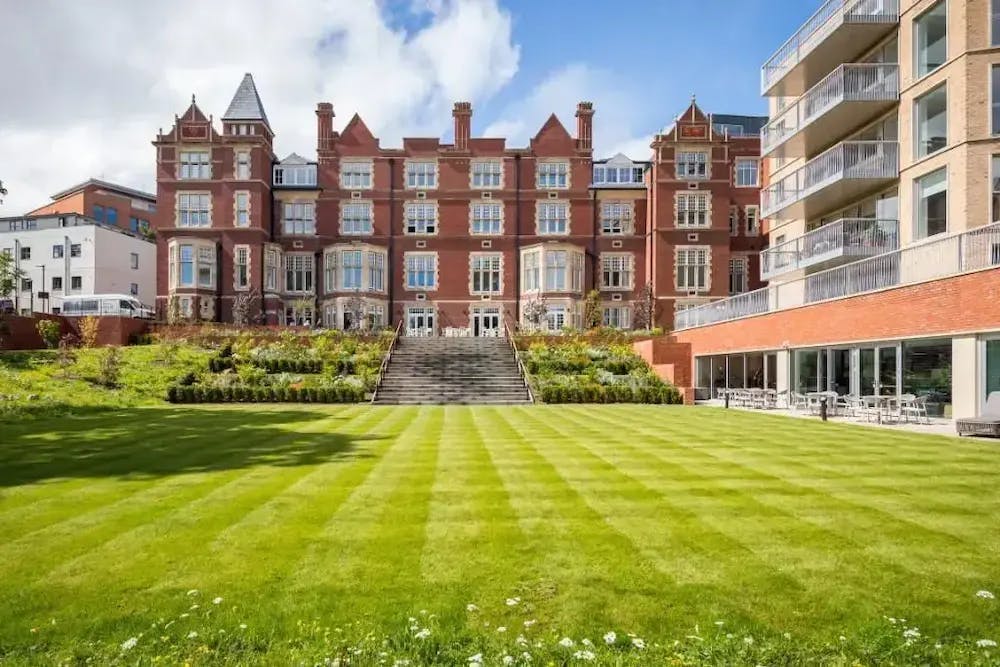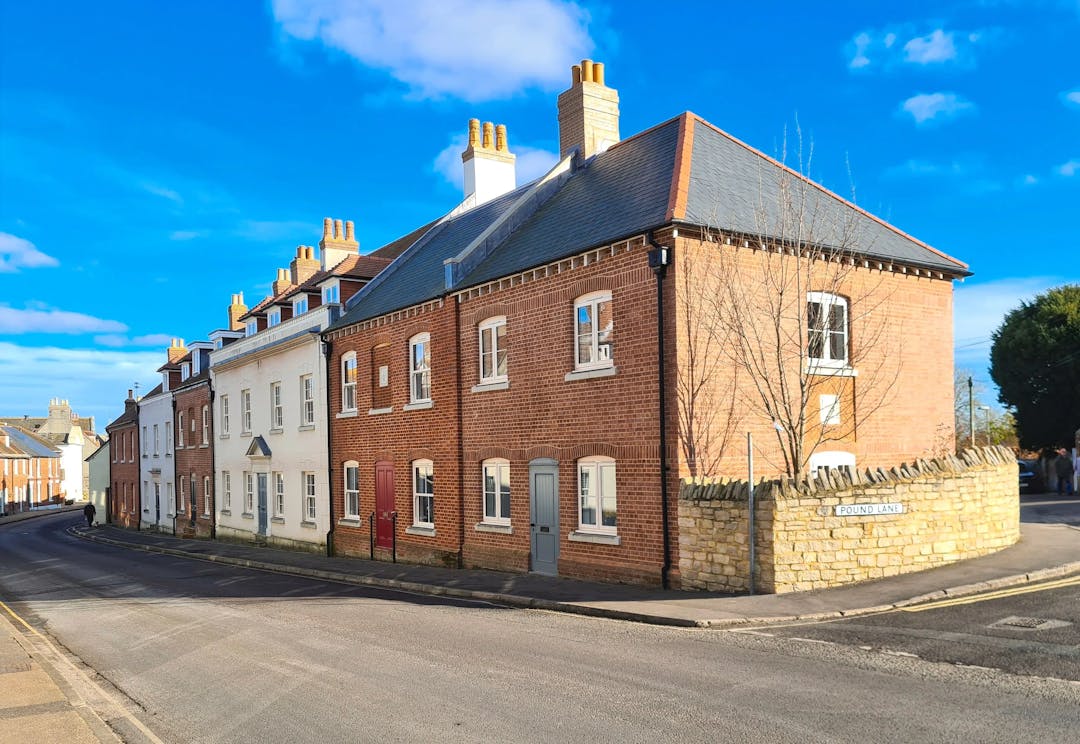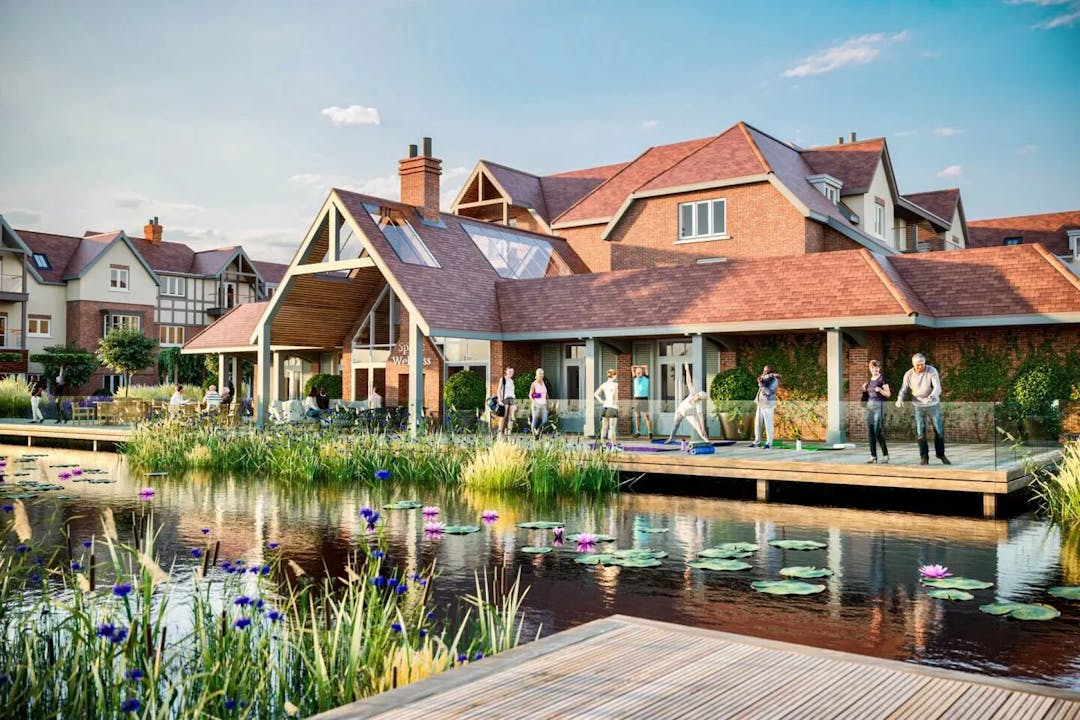The Average Retirement Home Costs in the UK (2025)
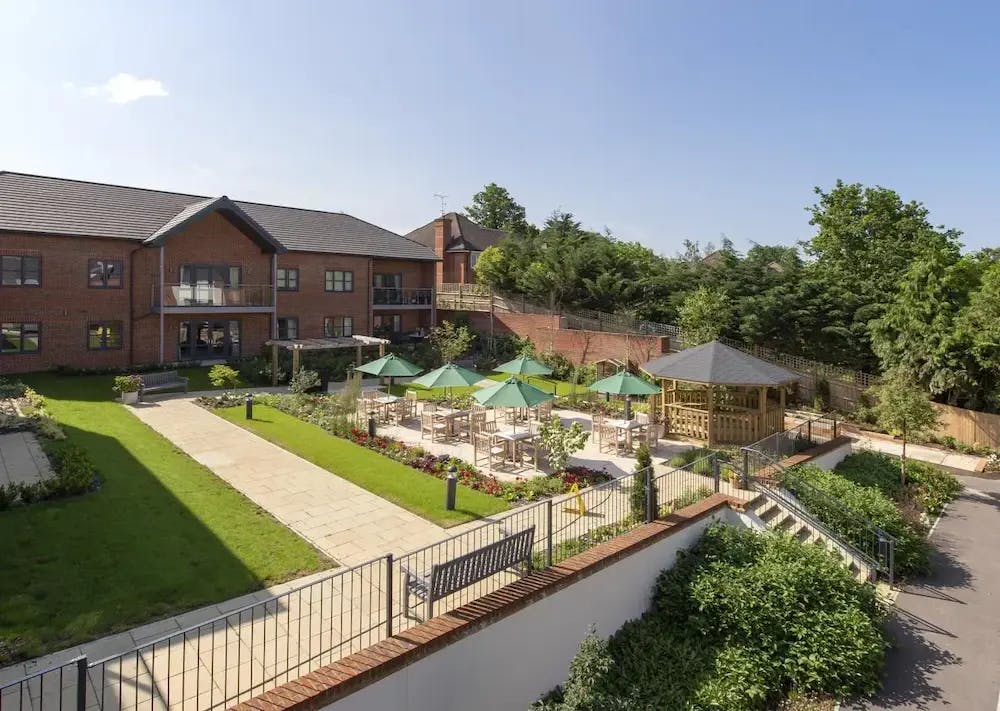
Estimated Reading Time: 13 minutes
This article was reviewed by Sara Chapin, Director of Finance at Lottie, in January 2025, to ensure accurate and trustworthy information for care seekers. Sara Chapin has been a Certified Public Accountant with the National Association of State Boards of Accountancy since 2017. Next review due January 2026.
Retirement homes represent a comfortable way of spending your sunset years. Aimed at over 55s, these property types usually consist of a purpose-built home, a friendly community of like-minded retirees, premium facilities and attentive staff to provide assistance whenever required.
Rather than struggling to maintain a large family home, retirement homes allow you to stay independent while reducing your workload. So just how much will you have to pay to take advantage of this pleasant form of retirement living?
We’ve broken down how much retirement homes cost up and down the UK, along with the additional fees that go with owning a retirement home. We’ve also compared buying versus renting a retirement property and how to find a retirement home in the UK.
Find the cost of retirement homes near you
Browse the best retirement homes through Lottie.
In this article:
- How much do retirement homes cost?
- Breakdown of possible costs and fees
- Buying a retirement property
- Renting a retirement property
- How to find a retirement home
How Much Do Retirement Homes Cost?
A Saga survey conducted among 9,500 people found that the most common reason for moving into a retirement home was to free up capital, allowing retirees to better enjoy their post-working years as a result. What this means is that to get on the retirement home ladder, you’ll first need the adequate resources.
The price of retirement homes hugely varies, depending on the location in the country you’re looking at (such as whether you'll be by the sea, what type of property you’re after and how many rooms you require.
Here’s how much retirement homes cost throughout various regions of England. We’ve worked this out by looking at all the retirement living properties listed through Lottie and taken the average amount in each case:
East Anglia
In East Anglia, the average cost of buying a one bedroom apartment is £213,950, while a two bedroom apartment costs £317,700. Renting a one bedroom apartment costs an average of £1,256 a month, whereas a two bedroom apartment costs £2,330 a month.
One bedroom apartments at Uplands Place start from £254,950.
East Midlands
In the East Midlands, the average cost of buying a one bedroom apartment is £224,560, while a two bedroom apartment costs £260,717. Renting a one bedroom apartment costs an average of £1,659 a month, whereas a two bedroom apartment costs £2,117 a month.
One bedroom apartments at Mill Gardens and Farnham House start from £234,450.
London
The average cost of buying a one bedroom retirement home in London is £708,200 while a two bedroom apartment costs £799,313. Renting a one bedroom apartment costs an average of £3,896 a month, whereas a two bedroom apartment costs £4,125 a month.
One bedroom apartments at Belle Vue start from £650,000.
North of England
In the North of England (North East and North West), the average cost of buying a one bedroom apartment is £215,922, while a two bedroom apartment costs £304,135. Renting a one bedroom apartment costs an average of £1,344 a month, whereas a two bedroom apartment costs £2,089 a month.
One bedroom apartments at Brideoake Court start from just £195,999.
South East
In the South East, the average cost of buying a one bedroom apartment is £342,900, while a two bedroom apartment costs £478,696. Renting a one bedroom apartment costs an average of £2,278 a month, whereas a two bedroom apartment costs £3,144 a month.
One bedroom apartments at Ledian Gardens start from £324,000.
South West
In the South West, the average cost of buying a one bedroom apartment is £260,082, while a two bedroom apartment costs £403,660. Renting a one bedroom apartment costs an average of £1,865 a month, whereas a two bedroom apartment costs £2,742 a month.
One bedroom apartments at The Vincent start from £375,000
West Midlands
In the West Midlands, the average cost of buying a one bedroom apartment is £238,481, while a two bedroom apartment costs £328,293. Renting a one bedroom apartment costs an average of £1,909 a month, whereas a two bedroom apartment costs £2,442 a month.
One bedroom apartments at Ryland Place start from just £175,950.
Yorkshire
In Yorkshire, the average cost of buying a one bedroom apartment is £214,927, while a two bedroom apartment costs £305,399. Renting a one bedroom apartment costs an average of £1,604 a month, whereas a two bedroom apartment costs £2,399 a month.
One bedroom apartments at the Matcham Grange start from £250,000.
Though by no means exhaustive, the table below should give you a rough idea of what retirement homes cost to buy and rent in different parts of England, based on the average price of the properties that we list!
How Much Do Retirement Homes Cost in Different Parts of England?
| Region | One Bedroom Apartments (To Buy) | Two Bedroom Apartments (To Buy) | One Bedroom Apartments (To Rent) | Two Bedroom Apartments (To Rent) |
|---|---|---|---|---|
| East Anglia | £213,950 | £317,700 | £1,256 PCM | £2,330 PCM |
| East Midlands | £224,560 | £260,717 | £1,659 PCM | £2,117 PCM |
| London | £708,200 | £799,313 | £3,896 PCM | £4,125 PCM |
| North of England | £215,922 | £304,135 | £1,344 PCM | £2,089 PCM |
| South East | £342,900 | £478,696 | £2,278 PCM | £3,144 PCM |
| South West | £260,082 | £403,660 | £1,865 PCM | £2,742 PCM |
| West Midlands | £238,481 | £328,293 | £1,909 PCM | £2,442 PCM |
| Yorkshire | £214,927 | £305,399 | £1,604 PCM | £2,339 PCM |
Source: Lottie's internal data, based on the retirement living providers we're partnered with.
What our data shows is that London remains the most expensive UK region for purchasing properties, including retirement homes. Although the average price to purchase a two bedroom apartment is just under £800,000, we also offer a handful of premium London retirement homes at a much higher price, such as the gorgeous Fulham Riverstone which sits on the banks of the River Thames.
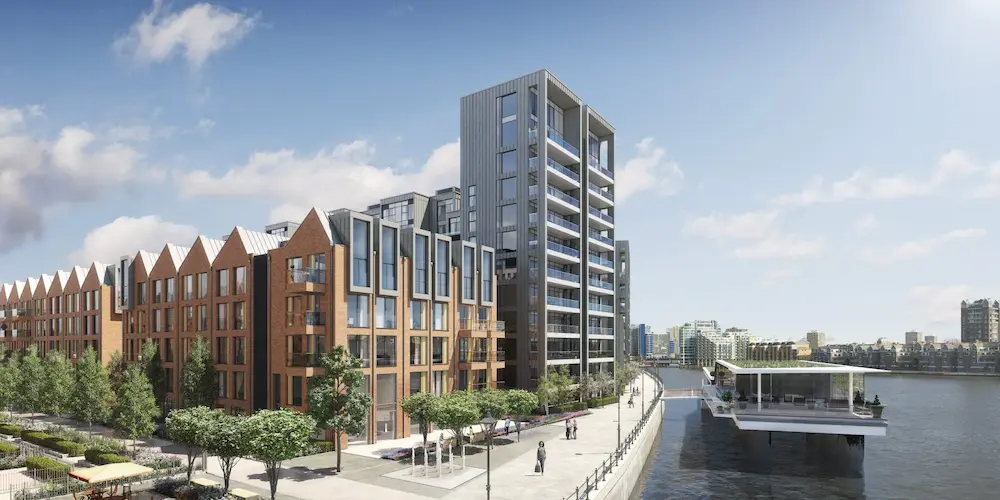
On the other hand, the cheapest parts of England to buy and rent retirement homes are the East Midlands, the North of England (North East and North West) and Yorkshire.
We can help you find the perfect UK retirement home. Use our free service to filter by location, price, the facilities available, purchase type and more!
Breakdown of Possible Costs & Fees
Before deciding to purchase or rent a retirement home, you’ll need to know all the costs and fees involved. Be sure to read the small print, as there are some additional fees you’ll need to cover.
If you’re in the market for a new retirement home, rest assured our experts will support you at every step of the way.
Management fees
Often, the single biggest cost of living in a retirement home or retirement village will be the monthly management fee or service charge. This covers just about every service that goes into running retirement properties, including cleaning and staffing any communal facilities, maintaining green spaces, round-the-clock site security, 24/7 support for residents and the management team themselves who ensure that residents' needs are swiftly attended to.
The service offered here is similar to that of warden controlled housing.
What's the average management fee for retirement homes?
Some retirement homes have a management fee or service charge while others offer a bills-included package - meaning one monthly payment covering all expenses.
Our internal data (based on the retirement properties we list) shows that the average weekly service charge for a retirement property is £120.93, while the average monthly service charge is £523.99.
These figures can be affected by a couple of things, including whether the property is one, two or three bedrooms, as well as size in general (you’ll usually pay a higher service charge on larger properties). Retirement developments with more expensive buying/renting costs will usually have higher service charges as well.
Our retirement property listings also show if there’s a separate service charge and/or deferred management fee.
For instance, Island View Retirement Home in Basingstoke shows there’s a service charge for this home.

Some retirement homes - such as Pegasus Chapelwood in Wilmslow, also have a service charge but don’t state what this is upfront. Instead, you’ll need to request a full breakdown of service charges for each community - and our retirement experts can help you with this request.

Ground rent
Most retirement homes and villages offer properties as a leasehold, rather than a freehold. This means that although you own the building, you don’t own the land on which it’s built and pay an annual fee as a result. This is known as ground rent and usually costs a few hundred pounds per year.
This varies from provider to provider though, with some stating that paying ground rent typically costs between £400 and £500 every year.
Contingency fees
Sometimes, you’ll have to pay a contingency fee that goes towards large, unanticipated retirement home costs. Some examples of this are major repairs or improvements to communal areas.
Utility bills
Unlike a nursing home or residential care home, you’ll still be required to pay for conventional bills such as gas, electricity and water. Alongside these, you’ll need to factor in other monthly expenses like TV licence, broadband and car upkeep.
To add some context as to how much you can expect these bills to be, the average annual gas bill for 2021 in the UK was £575, or £47.92 per month. Meanwhile, electricity was £764 for the year, or £64 per month. Going forward though, the rising price cap makes the cost of utility bills difficult to predict.
Council tax
You’ll also have to pay council tax. How much council tax costs you every month depends on where you live in the UK you live and the value of your property. You can use GOV.UK to check your council tax band for England and Wales.
Insurance
The management/service fee will usually include buildings insurance so this isn’t something you need to worry about. However, to protect your belongings against theft and damage, we’d recommend considering contents insurance.
As it happens, over 70s actually pay less for home and contents insurance than other groups in the UK, due to being seen as lower risk and more loyal customers. The average home insurance policy for those over 70 in the UK is £94 per year. For contents insurance, it’s just £51. When picking a policy that combines home and contents insurance, the yearly average cost is £120.
Living costs
Don’t forget that on top of fees charged directly by the retirement home provider, you’ll still need to budget for living expenses. These will range from the essentials - food and household cleaning products - to taking advantage of any on-site facilities, social events and other forms of entertainment.

Care costs
One of the main reasons why retirees choose retirement homes is the regular availability of nursing care and similar support. Even with increasing needs, you’re able to stay put in a comfortable setting with medically qualified help. Other services are often available to further remove any stress from your post-working life, including dressing, washing and putting away your shopping.
Unfortunately, this excellent level of care doesn’t come free of charge. When looking at a retirement home or village, make a point of finding out what care is available and how much you can expect it to cost.
What’s great about retirement housing though is that this level of care is more affordable than what you get in a care home. The cost of care remains lower while allowing you to stay in your home for much longer, promoting independence in the process.
We have an article dedicated to explaining care home costs in the UK.
Deferred management fees
Another additional cost to bear in mind is a possible deferred management fee. This can be anywhere from 10% to 30% of the purchase price and is payable when you move on. Some homes will lower this percentage over time to reflect your continued usage of the facilities.
These fees can cause complications for those looking to move to a different facility or village, as the value of your investment will be reduced. So, it’s important to ask upfront about any costs for leaving your retirement home. Our care experts will provide a breakdown of all costs, so you’ll have as much information as you need.
Buying a Retirement Property
Because of their premium quality, retirement homes can be quite expensive. It’s worth pointing out though that this high quality means that you won’t have to do anything to your new home to make it suitable for your needs. The majority of retirement homes are retirement flats to buy or rent, retirement bungalows or single-story properties, so as to largely avoid the need for stairs. Having said that, there are a handful of cottages and mews available in certain UK locations.
Retirement homes aren’t financed by a mortgage, meaning they have to be purchased for cash. This usually isn’t too much of a problem for a retiree who has already paid off their existing home. Renting is a popular alternative for retirees who aren’t as cash-rich. Just bear in mind that this option means you won’t have any equity in the property that can be passed on to your children.
If you’re struggling to sell your current property, you could opt for a buying/renting combination - known as deferred completion. Here, you’ll rent until your former home has been sold, by which time you can then purchase the property you’ve been renting.
Renting a Retirement Property
An alternative option to buying your retirement home outright is through renting, which comes with plenty of benefits. After all, renting is what allows many retirees to afford and sustain an enjoyable lifestyle within a retirement community.
Deciding whether to buy or rent a retirement property can be made easier by checking how the prices of retirement homes stack up against sheltered housing and whether you’ll be able to comfortably afford the property in question, including any unexpected costs that may arise.
Looking at bills, activities and facilities - and figuring out whether these are included in the overall cost - will make understanding the overall cost of renting a retirement home far simpler.
When renting, you should also look into additional features of the retirement home, such as whether there’s a guest suite for family/friends and any subsequent cost to go along with it. Bearing this in mind, look at how far away the retirement home is for family and friends.
How to Find a Retirement Home
We help people find retirement homes. We do this by matching you with the very best retirement living properties. You can use our easy-to-navigate retirement home search directory to locate the perfect option for you or your loved one.
From finding your new retirement home to aiding with the settling-in process, our excellent team will support you every step of the way as well.
Retirement homes offer secure, vibrant and luxurious housing with state-of-the-art facilities for older adults. Request a free retirement living shortlist and we’ll recommend retirement properties matching your budget, location and desired facilities.


